STATE EDUCATIONAL INSTITUTION OF SECONDARY SCHOOL №2 SPECTRUM
_________________________________________________________________
WHO IS A PRODIGY?
Section OF THE ENGLISH LANGUAGE
Authors:
Ogorodnikov V, Urvancev V,
6 D form
Head teacher: Zhuravleva Yulia Sergeevna,
teacher of the English language
Berdsk– 2016
CONTENTS
INTRODUCTION……………………………………………………………………..3
CHAPTER 1. “prodigy”. is it a word or a person?...............................4
The semantics of the word “prodigy”……………………………………4
Examples of prodigies…………………………………………………….6
Characteristics of child prodigies……………………………………….9
CHAPTER 2. PRACTICAL RESEARCHING……………………………………..12
2.1. How determine a prodigy?...............................................................................12
2.2. How we found “a prodigy”…………………………………………………..13
CONCLUSION………………………………………………………………………..15
LITERATURE………………………………………………………………………...16
APPENDIX 1. 10 most genius child prodigies of the world………………………...17
APPENDIX 2. A test “do Not miss a Prodigy”…………………………………. ….18
APPENDIX 3. Questions for an interview and the test’s results…………………..20
APPENDIX 4. Our classmates-prodigies……………………………………………21
INTRODUCTION
To many Russian young people, the word «Prodigy» can be familiar, because it’s the name of the famous music British group of 90’s.
But, we are going to tell about children, that can be named “prodigies”.
God blessed some selected people with extraordinary talent. Some people are gifted with this magical talent since their childhood. They’re the super genius and really smart. Generally before 10 years old they showed their abilities comparable to those highly skilled adults in specific fields; hence the term child prodigy is used for them. There have been many child prodigies throughout history, and some of them even go on to be prolific adults. Most of them have done more intellectually by that time than we’ll do in our entire lifetimes.
So, who is a prodigy?
The object of the research is the phenomena of prodigy.
The subject is children that can be named “prodigy”.
The main aim of the work is to learn more detailed information of the topic “Who is a prodigy?”
The objectives are:
to learn the semantics of the word “prodigy”;
to search some examples of prodigies and tell about them;
to define the features of this phenomena;
to look for a prodigy among our classmates;
to make a conclusion.
We used the next methods: an interview, a questionnaire survey, our personal survey and quantitative review.
Texts under study are dictionaries, different articles from the Internet, blogs.
Practical significance is to define the cleverest children in our class, then in our school. We are sure, that our work will be useful for our teacher of the English language.
CHAPTER 1. “prodigy”. is it a word or a person?
1.1. The semantics of the word “prodigy”
What are prodigies?
The Longman Dictionary of Contemporary English says, that it is countable noun and it means “a young person who has a great natural ability in a subject or skill” [Longman Pearson, 2014: 256].
The Cambridge Advanced Learner’s Dictionary says that it is “a young person who is very good at something” [Cambridge Advanced Learner’s Dictionary, 2013: 356].
“Prodigy” is from a distinct Latin word “prodigium”, meaning “omen or monster”.
It has some synonyms: genius, wonder child, wunderkind, mastermind, intellectual or mental giant, wizard, virtuoso, brain.
As you can see, in the semantics of the word, there is a German version of this word “wunderkind”, that people get used to hear. Wunderkind also is used to recognize those who achieve success.
The Russian- English dictionary translates this word as “чудо, вундеркинд, одаренный” [The Russian- English dictionary, 2011: 115].
In literary we can see expressions like child prodigy, infant prodigy.
Wikipedia gives an interesting interpretation of this word [6].
Prodigy may refer to:
* Child prodigy, an individual who is a master of one or more skills or arts at an early age.
In music:
* The Prodigy, a British electronic music group
** Moog Prodigy, the synthesiser from which the group got its name
* Prodigy (rapper), an American rapper and part of the hip hop duo Mobb Deep
In literature:
* Prodigy (comics), four different fictional characters in the Marvel Universe
* Prodigy (David Alleyne), a mutant and member of the X-Men in the Marvel Universe
* "Beneath the Wheel", a 1906 novel by Hermann Hesse also known as "The Prodigy"
In movies:
* The Prodigy (film), a 2004 movie by William Kaufman.
In television:
*"Prodigy"(Stargate SG, a season 4 episode of the television show "Stargate SG-1";
* The Prodigy (TV show), a proposed reality TV show produced by Actuality Entertainment that never aired, and isalleged to be part of an elaborate scam by bankrupt Utah-based security alarm company Firstline.
In technology:
We researched the literature in psychology and found the term child prodigy is defined as a person under the age of ten who produces meaningful output in some domain to the level of an adult expert performer. Child prodigies are rare; and, in some domains, there are no child prodigies at all. Prodigiousness in childhood does not always predict adult eminence.
Some researchers believe that prodigious talent tends to arise as a result of the innate talent of the child, and the energetic and emotional investment that the child ventures. Others believe that the environment plays the dominant role, many times in obvious ways.
We are interested in examples of prodigies. We can meet prodigies in different fields: Maths and science, physics, astronomy, chemistry, biology, medicine, art, sports, music.
We found some of such people that are named like prodigy. Some of them are still famous.
Examples of prodigies
In this part of our researching we would like to tell about examples of prodigies. Some examples are of historical prodigies, some of them are of modern child prodigies [5].
Pablo Picasso was born on October 25, 1881 in Malaga, Spain. He was the first child of Don Jose Ruiz y Blasco, an art teacher, and Maria Picasso y Lopez. At an early age Pablo showed an interest in drawing. His first words were "piz, piz", which is short for "lapiz", the Spanish word for pencil [8].
At the age of 7, Pablo began receiving art instruction from his father. His father believed that an artist's training should include copying the masters and drawing the human body from plaster casts and live models. The precision of Pablo's painting technique grew until it soon surpassed that of his father [8].
In 1895, Pablo's father accepted a position at Barcelona's School of Fine Arts. He asked officials to allow his son to take the entrance exam. The officials were impressed with Pablo's abilities and admitted him to the academy. As a student he lacked discipline but made friends and continued to grow as an artist [8].
At the age of 16, Pablo's father enrolled him in Spain's most distinguished art school, Madrid's Royal Academy of San Fernando. However, his instruction at the Royal Academy lasted only a short time as he struggled to accept formal instruction. In spite of these difficulties, his time in Madrid was not wasted. Pablo visited Madrid's museums and saw the paintings of Diego Velasquez and Francisco Goya, though it was the works of El Greco that he admired most [8].
In 1900, Picasso made his first trip to Paris. At that time Paris was considered to be the art capitol of Europe. While in Paris, Picasso's work began to attract the attention of art collectors. By 1905, he had become a favorite of American art collectors Leo and Gertrude Stein. It was through them that Picasso met French artist Henri Matisse. The two became lifelong friends[8] .
In 1907, Picasso painted one of his most important works - Les Demoiselles d'Avignon, - creating with painter and sculptor Georges Braque the brand new art movement known as "Cubism". Cubism allowed the artist to show his/her model from many different viewpoints. In the paintings of earlier times, the artist showed his subject from one particular viewpoint. In cubist paintings the artist may show the front and the side of a person's face at the same time [8].
Pablo Picasso died on April 8, 1973 in Mougins, France. He is best remembered as the co-founder of Cubism, and for Cubist works Les Demoiselles d'Avignon (1907), Three Musicians (1921) and Guernica (1937). As a young boy, Pablo Picasso was a prodigy whose skills became an expressive power that profoundly affected the art of the twentieth century [8].
The website “Worderslist” says about 10 most genius child prodigies of the world [5]. Here are they (see Appendix 1).
Priyanshi Somani is a mental calculator from India. She started mental calculation at the age of six. At the age of 11, she was the youngest participant of the Mental Calculation World Cup 2010 and won the overall title. She is the only participant who has done 100% accuracy in Addition, Multiplication, Square Root till date in all five Mental Calculation World Cups. She is the winner of “Pogo Amazing Kids Awards 2010” in genius category. Her name is also added in the Limca Book of World Records as well as the Guinness Book of World Records [5].
A straight-talking schoolgirl, Elaina Smith became Britain’s youngest agony aunt – at just seven years old. She is the youngest broadcaster ever seen. Her local radio station gave her the job after she called in and advised a listener who wanted to dump her boyfriend. The broadcaster was so impressed with her advice — “go bowling with pals and drink a mug of milk.” They offered her a weekly slot to give tips to thousands of adult listeners. The littler adviser tackles problems and offers many solutions about romance to the listeners on how to select a boyfriend [5].
Best known as the world’s youngest college graduate at the age of 10. Michael was born in 1984 and known for setting several world records and teaching college at the age of 17. Michael spoke his first words when he was just four months old. When he reached six months, he said to his pediatrician “I have a left ear infection” and learned to read at the age of ten months. In 2008, he became a reality show Millionaire, and earned $1,000,000 on the television game show Who Wants to be a Millionaire? [5]
Born in 1990, Gregory Smith was memorizing and reciting books at the age of 14 months and had enrolled in university at 10 years. When Gregory graduates, he was the youngest person ever to receive a master’s degree from the University of Virginia. This young man travels the globe as a peace and children’s rights activist and got the Nobel Prize at the age of 12 only. He is the founder of International Youth Advocates, an organization that promotes principles of peace and understanding among young people throughout the world [5].
Kripke was born in New York on November 13, 1940, and spent his childhood in Omaha, Nebraska. He was labelled a prodigy, having taught himself Ancient Hebrew by the age of six. He read the complete works of Shakespeare by the age of nine. He mastered the works of Descartes and complex mathematical problems before finishing elementary school. He wrote his first completeness theorem in modal logic at the age of 17, and had it published a year later. In 1958, Kripke attended Harvard University and graduated summa cum laude obtaining a bachelor’s degree in mathematics. During his 2nd year at Harvard, Kripke taught a graduate-level logic course at nearby MIT [5].
The two-year old artist who showed her paintings in a famous Gallery. Born on 9 January 2007, Aelita Andre is an Australian abstract artist known for her Surrealist painting style and her young age. She began to paint when she was only nine months old. Her work was displayed publicly in a group exhibition shortly after she turned two. Her first solo exhibition opened in New York City in June 2011, when she was four years old [5].
A three-year old singer who earns 1000€ per song. Cleopatra was born on 6 October 2002 in Moldova. She was the youngest singer to get the commercial success with her album named “La Varsta de Trei ani”. She also has a record for performing live for straight two hours in front of a huge audience. She holds the record for the highest paid young artist. She’s the youngest artist to receive an MTV award and the youngest artist to score a No.1 hit in a country [5].
Arfa Karim was a Pakistani student and computer prodigy who in 2004 become the youngest Microsoft Certified Professional (MCP), just at the age of nine years. She represented Pakistan on various international forums including the TechEd Developers Conference. She also received the President’s Award for Pride of Performance. A science park in Lahore – The Arfa Software Technology Park – was named after her. She was invited by Bill Gates to visit the Microsoft Headquarters in the USA. She died in hospital at Lahore on 14 January 2012, aged 16 years [5].
With the IQ level of 146, a young Indian Akrit Jaswal, who has been called “the world’s smartest boy”. He is considered the smartest person of his age in India. He came to public attention in 2000, when he performed his first medical procedure at his home. He shocked the people at the age of 7 years, when he did a surgery on a native girl who suffering from the burns on her hands [5].
He focused his phenomenal intelligence on medicine and became the youngest person to be admitted to a medical university in India (Punjab University), just at the age of 12. At the same time he claimed to be on the verge of discovering a cure for cancer [5].
Kim Ung Yong is thought to be the most Genius Child in the world. He was born on March 8, 1962, in Korea. He has broken the Guinness book records by the IQ level of 210. At the age of 4 years only he had the ability to read Korean, Japanese, English and German language, also solved complicated differential and integral calculus problems. He was a guest student of physics at Hanyang University from the age of 3 to 6. At the age of 7 he was invited to America by NASA. He finished his university studies, eventually getting a Ph.D. in physics at Colorado State University before he was 15. This Korean super-genius might just be the smartest guy alive today [5].
They are so young and talented. Parents should be proud of their prodigies.
Characteristics of child prodigies
Most people who have studied child prodigies agree that there is a genetic component to genius.
Gifted children are often jealous of those whom nature has not endowed as generously abilities. But the life of a Prodigy is not so easy and carefree as it may seem from the outside. Such children often have weaker nervous system, unbalanced, uneven character. This is largely influenced by the attitudes of adults who, on the one hand, indulge without measure your child and show the child to increased demands. In addition, geeks often feel very lonely: it is difficult to find friends and to set with someone close relationship.
Increased attention to these children and the high standards that they imposed, cannot fail to influence geeks. Constant stress can lead to nervous exhaustion. Gifted children are almost twice as likely than their peers to take their own life.
It often happens that in adult life geeks can't find yourself. Their communication skills are underdeveloped, so it's hard to find friends or a couple. Surrounding continue to present to geeks who grew up with the increased demands, and it can become a burden to grown children. And the geeks will at some point understand that they have had no childhood – they were too older and are unable to enjoy simple pleasures like aimless running around, riding the carousel and extraordinary ice cream on a walk with my parents. Someone gifted children cope with them and going through this crisis relatively unscathed, and someone "breaks", begins to drink or terminating a life in a psychiatric hospital.
Currently, the causes and the nature of genius are not well understood. The human brain is still a mystery in many ways, but science has unraveled a few interesting clues. Scientists don’t know exactly how the gray matter in the human brain works, but there is an interesting correlation between intelligence and grey matter.
But there is also a flip side of the coin in being a prodigy. While most child prodigies do have high IQs, they do not demonstrate extraordinary performance across the board. Rather, they are bright individuals whose ability is far beyond that of age mates but falls short when compared to adults. Some child prodigies, however, have skills outside the range of even the most able adult competitors.[10] But multiple intelligences are rare to the prodigy. Lewis Terman, who studied 1500 genius children 70 years ago, was quite surprised to find that starting life with an enormous IQ was no guarantee of future success. While it was true most of his subjects went on to make substantial contributions to society, there were many who seemed to flounder as they reached adulthood. Some had trouble keeping a steady job, others were merely average at the jobs they had [10]. Grown-up child prodigies’ intellectual prowess did not make them immune to mental illness, and a good percentage struggled with alcoholism. At least twenty-two of his subjects committed suicide.
Contrary to popular belief, child prodigies do have strengths that beat other children, but when they become adults, they often struggle with everyday lives.
Having learned facts about this phenomena and examples, we defined main features of being prodigy:
-Being a prodigy means you have natural talent at something you've never tried, or have developed an extraordinary skill over time;
-Becoming a prodigy requires a great deal of hard work. Work on building a skill set, and getting rid of bad habits;
-If you decide to work in a field that fascinates you, you're more likely to be motivated to develop the skill set necessary to becoming a prodigy;
-There is no quick and easy way to develop the skills necessary to become a prodigy. You'll simply need to practice as much as possible;
-Be confident and willing to try new things even if you'll sometimes fail in the process;
-You cannot achieve the talents of a prodigy without guidance. Find the best teacher possible if your goal is to become a prodigy;
-Look for opportunities to learn, grow, and change everywhere you go. This can help you develop the skills necessary to becoming a prodigy;
- Improve your memory;
-Be empathetic;
-Focus on creating your personal best with each new project.
This can help a child to develop the skills of a prodigy.
Начало формы
Конец формы
CHAPTER 2. PRACTICAL RESEARCHING
2.1. How determine a prodigy?
We tried to learn the ways of determining a prodigy in life. The special literature says, that exceptionally gifted children often demonstrate their intellectual capabilities from a young age [9]. While there are no hard and fast rules, most gifted children tend to display well-developed verbal skills far ahead of their peers. According to the BBC, potential geniuses often start reading at age 2 or 3. They also show mastery of adult vocabulary around the same age, a product of their unusually powerful memories. Not all the signs of genius are verbal, however. Gifted children are also likely to show an awareness of current events, musical talent and a mature sense of humor.
The closest thing to a scientific measurement of genius in children, according to Duke University's Talent Identification Program, is the intelligence quotient test. Several IQ tests attempt to measure intelligence. Questions differ, but all of the tests measure intelligence in several categories including verbal reasoning, spatial reasoning and active memory. The tests are standardized to produce an average score of 100 with a standard deviation of 15 or 16 points, meaning that about two-thirds of people should score between 85 and 115. Scores above 130 and below 70 are very rare. Gifted children usually score in the top 2 percent of test takers, earning scores above 130. Geniuses usually score higher than 145 or 150 points on these tests, indicating an intelligence level higher than 99.7 percent of the population [9].
Although IQ tests provide a simple and convenient measurement of intelligence, they have some serious limitations. Exceptionally intelligent children suffering from attention-deficit hyperactivity disorder or other cognitive impairments may underperform on the tests relative to their true intelligence. Some children may achieve genius levels in some categories of intelligence, such as spatial reasoning, but perform normally in other categories. This makes it difficult to sum up their overall intellectual capacity in a single score, according to Cambridge University. Extremely high-performing children are also difficult to differentiate due to a ceiling effect; tests designers don't include many high-difficulty questions, because the vast majority of people would miss them, rendering such questions pointless. Consequently, two children with IQs of 160 and 175, respectively, might both answer every question perfectly and receive the same score even though their abilities differ [9].
2.2. How we found “a prodigy”
To make our researching more interesting and practical, we tried to look for a prodigy among our classmates. First, we made an interview and asked 26 pupils the next questions:
1) Do you know the meaning of the word “prodigy”?
2) Do you know the famous prodigies?
3) Are you a prodigy?
4) Would you like to be a prodigy?
The results seemed to be unconvincing, because someone could tell lies (see Appendix 3) .
According to features of being a prodigy, we suggested parents of our classmates to do a test “do Not miss a Prodigy” (see Appendix 2).
Every child has its own, its specific features that are recognized at a very early age. And the duty of parents to notice and develop latent abilities and inclinations. The test helped in it.
There are 26 pupils in our class. But only 14 could take part in our questionnaire survey.
As you can see, there are 46 per cent of our classmates can be named prodigy (see Appendix 3). Among them we want to pay attention to four of them. These children have the main features of being prodigy (see Appendix 4). Four of them have the best speaker’s skills. Katya Eroshkina, Sonia Shadchina and Denis Ivanon develop their ability from early years, studying at the local theatre. You can see their brilliant performances and we are sure, that they will be professional actor and actresses.
Kate Eroshkina is one of the most intelligent girl in our class. From the first class Kate participates in the competition of readers for literature, and even reads poetry in English. Her favorite poets and writers are Pushkin, Byron, Tolstoy. Kate is interested in historical novels. She goes to the cinema, theatres and museums. Katya's new hobby is drawing. She paints nature and people. But especially she loves to draw animals. Another Katya's passion is theatre. Kate often takes part in theatrical performances. She believes that it is possible to play not only in the dolls, but “to wear” some role. Kate says that her role is always bright and impressionable. She likes to transform into different characters, such as unusual live object or a village girl. Kate is very diligent girl. She hopes that the skills, she develops, will help her in the future.
Sonia Shadchina loves to participate in theater performances. She goes to drama school for 4 years. Her mother told us that little Sonia liked to have puppet shows at home. And so, her parents decided that Sonia needed to go to drama school. She dreams of becoming an actress and often goes to the theatres with Eroshkina Katya. Sonya does not like to sit on the Internet and talk for nothing. She is always happy to run into the studio and act, and act, and act….
Denis Ivanov is a born talent. Someone can envy his acting qualities. Denis attends drama school for 4 years. He is a very calm boy. He listens to his tutor very attentively. Denis loves to play female roles. This is a very good quality. He wants to become a very good artist and therefore he is always ready to transform into the unexpected role.
Uliana Chetirkina is the young hard-working artist. Her mom mentioned daughter’s ability at the age of 3, and now Uliana practices her skills at drawing school and makes friendly exhibitions. She draws everywhere and anything. Mostly Ulyana likes to draw animals and people.
CONCLUSION
At the end of our researching, we came to the next conclusion:
a prodigy is a young person who is very good at something;
to identify a prodigy among people seems to be not easy, because not everyone wants to get rid of being online or using phone, to develop his skills and be professional at his business;
we are sure that parents and school should be more attentive to these unique children;
and they should be an example to those, who are lazy to develop oneself.
We are sure that we are all unique and that is why our world is so interesting. Our society needs such child prodigies. They are our success, they are our future. Of course, there is no world without ordinary people.
We think that we will achieve the more results in our next work. It was starting point of our topic. We are interested in child prodigies of our school. How many are child prodigies in our school?!
LITERATURE
Cambridge Advanced Learner’s Dictionary. – Cambridge: Cambridge University Press, 2013. – 1572 p.
Longman Pearson. The Longman Dictionary of Contemporary English.- Longman Pearson Press, 2014.-1456 p.
The Russian- English dictionary- Русский язык, Pergamon, 2011.- 386 р.
Вундеркинд: воспитание чудо-ребенка [Электронный ресурс].- URL: http://www.womenclub.ru/children/2276.htm
10 Most Genius Child Prodigies of The World [Electronic Resource]. – URL: http://www.wonderslist.com/10-genius-child-prodigies-world/
Academic Dictionaries and Encyclopedias [Electronic Resource]. – URL: http://en.academic.ru/dic.nsf/enwiki/114163
- Child Prodigies [Electronic Resource]. – URL: http://brainconnection.brainhq.com/2000/07/20/child-prodigies/
Hey kids, Meet Pablo Picasso [Electronic Resource]. – URL: http://makingartfun.com/htm/f-maf-art-library/pablo-picasso-biography.htm
- How to Determine If Your Child Is a Genius [Electronic Resource]. – URL: http://www.ehow.com/how_2034465_determine-child-genius.html
- Newton’s Children -What Makes a Prodigy? [Electronic Resource]. – URL: http://www.dailygalaxy.com/my_weblog/2007/09/newtons-childre.html
APPENDIX 1
10 most genius child prodigies of the world
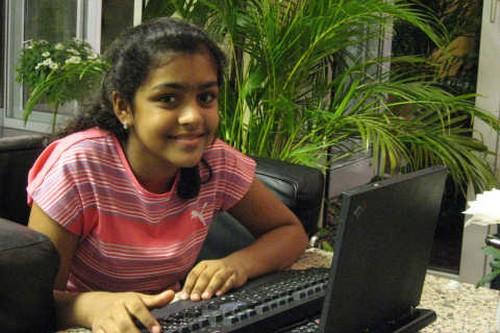
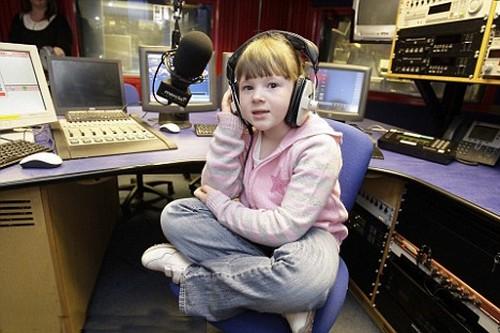
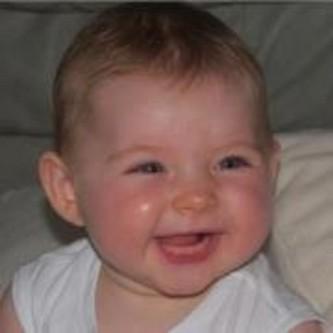
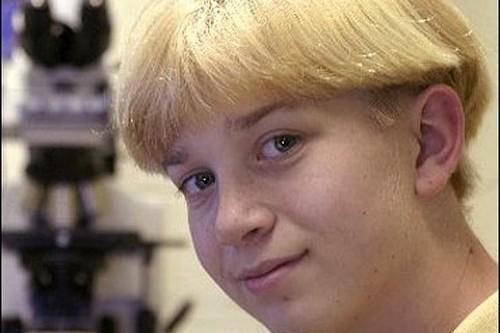
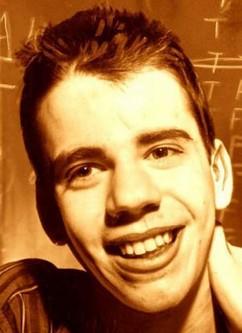
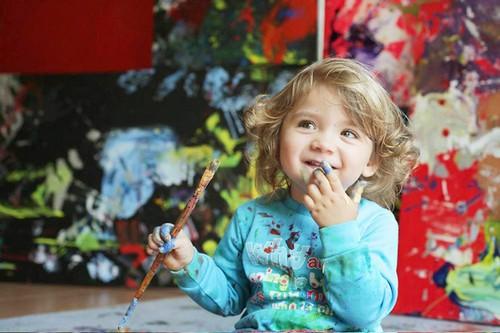
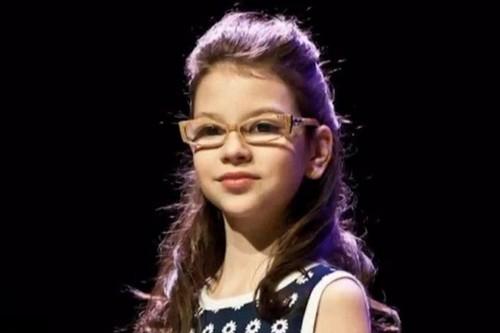

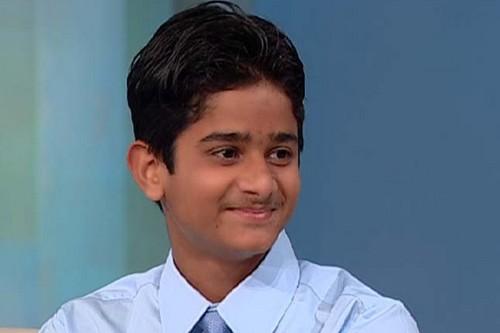
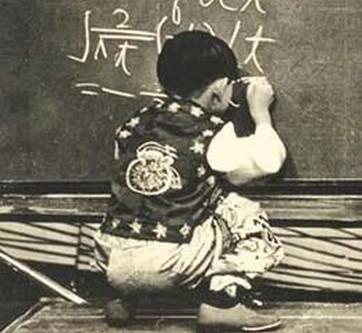
APPENDIX 2
A test “do Not miss a Prodigy”
1. Your child learned to read early (before the age of six), self — 7 points, with the help of someone — 5 points.
2. Reads a lot of books, and a quick 2 points.
3. By himself or with the help of someone interested in dictionaries or encyclopedias — 2 points.
4. Easy to learn to read but has difficulty reading — 1 point.
5. Deals behind closed doors, his friends tend to be older than he is, 2 points.
6. Prefer to converse with senior as equals — 2 points.
7. Specifies a lot of different tricky questions, sometimes putting adults in a dead end, 2 points.
8. He has ready answers to even the most unexpected questions — 1 point.
9. Sometimes scattered, but always knows how to make amazingly resourceful generalization (say, after watching the movie, TV or watching something) — 2 points.
10. Gladly enters into a conversation about the world around us, gives his assessment of events — 1 point.
11. Boredom refers to a repetitive, habitual things: washing floors, dishes, performing training exercises that do not require much effort, 1 point.
12. Very sensitive to any injustice, even if it's not for 2 points.
13. Likes to joke and has a sense of humor 2 points.
14. Has a rich vocabulary and clever in conversation, various terms — 2 points.
15. Love the game, requiring some ingenuity, to 2 points.
16. At an early age interested in what you are learning high school, 1 point.
17. It has a wide range of interests, and wants to do everything by yourself 2 points.
18. It is the universe, he is interested in questions of the universe and all that relates to prehistoric times, that is our primordial being — 2 points.
19. The school has effortlessly, quickly grasps the material and has an opinion on many issues — 2 points.
20. Well-developed perception of music, applied arts, environment, in harmony — 2 points.
Note that the objectivity of the test depends on accurate answers to the questions.
Count the glasses. If you scored between 10 and 13 — so your child has certain abilities and you need to think about how to develop them.
APPENDIX 3
Questions for an interview and the test’s results
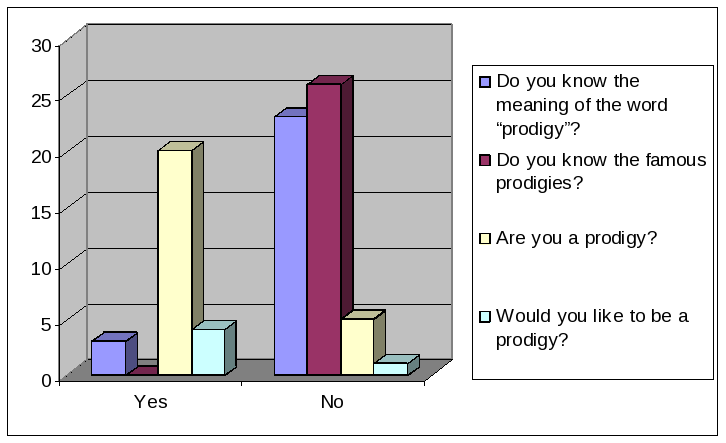
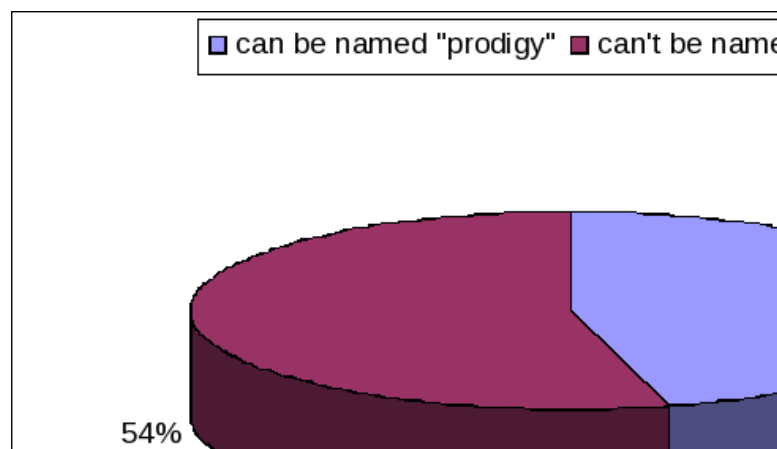
APPENDIX 4
Our classmates-prodigies
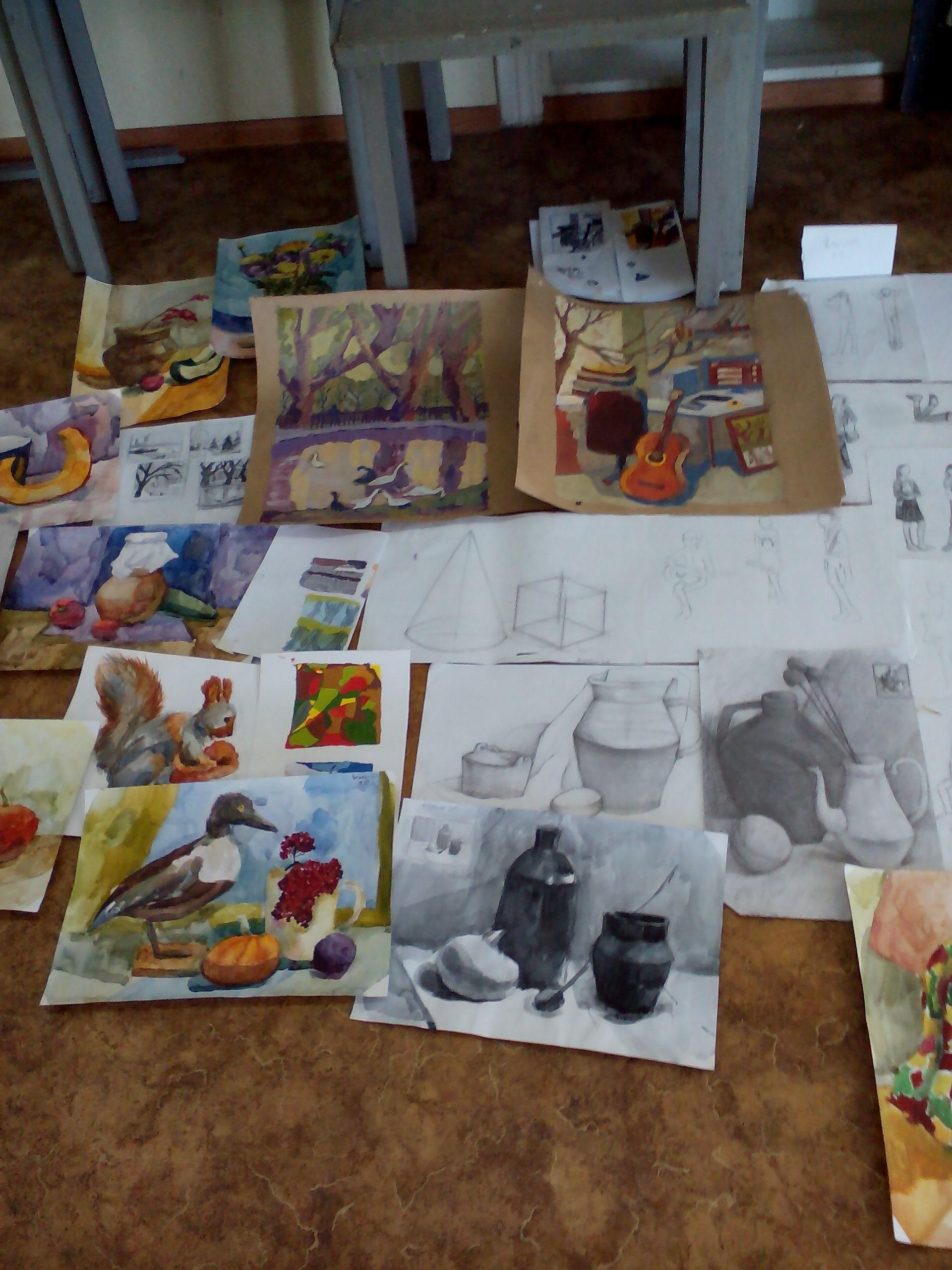
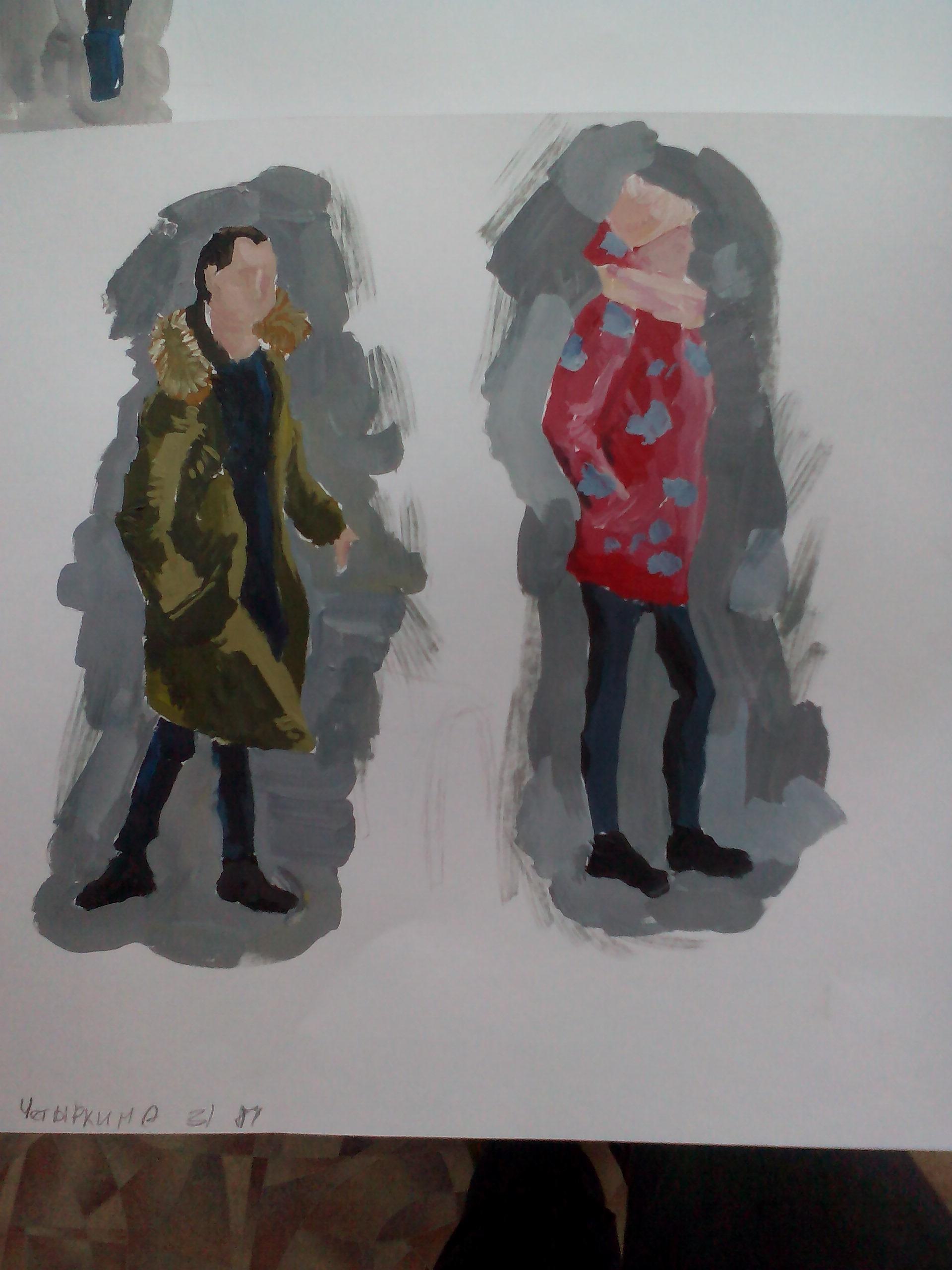
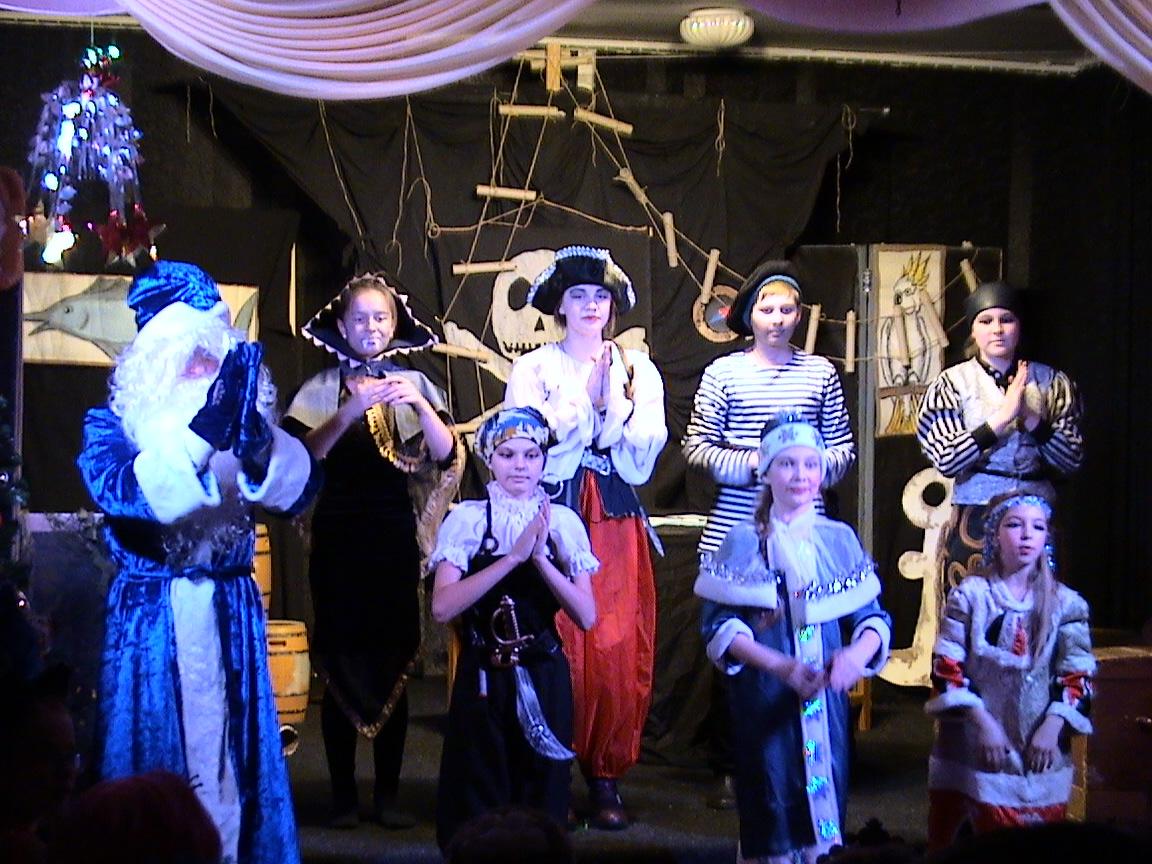
22






























